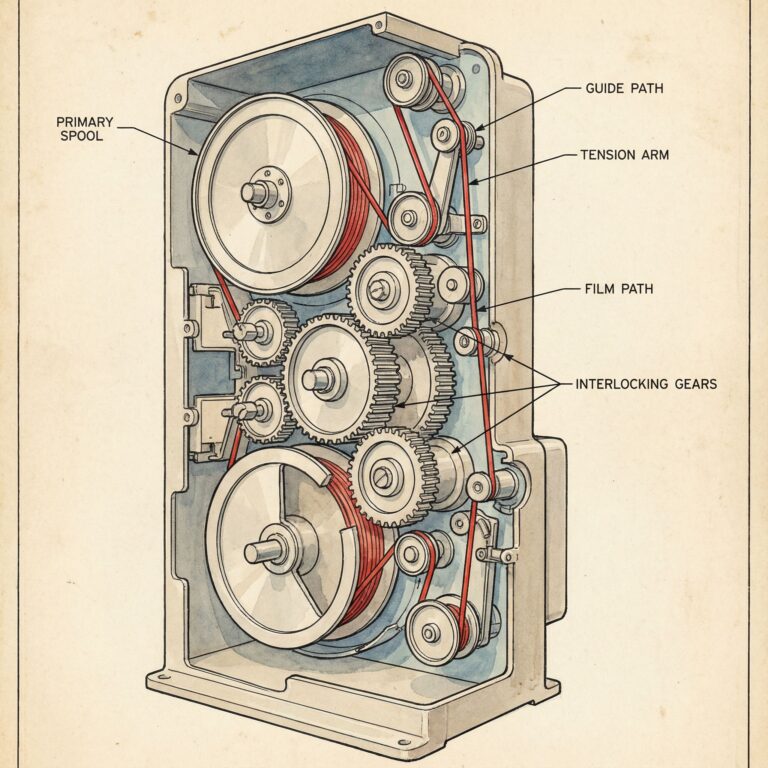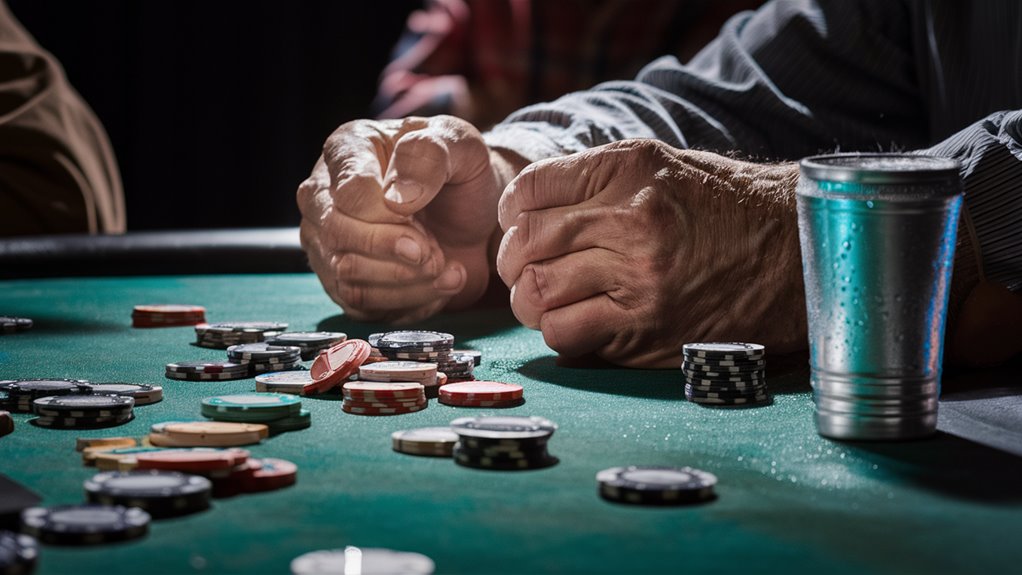
The Impact of Lithium-Enhanced Drinks in Professional Poker
Understanding Tournament Performance Enhancement
Professional poker players face unprecedented challenges during high-stakes tournaments, with sessions regularly extending 12-16 hours. The emergence of lithium-enhanced supplements has revolutionized how players approach these marathon competitions, offering a potential edge in maintaining mental clarity and emotional stability.
Scientific Basis and Performance Benefits
Micro-dose lithium supplements, typically containing 10-15mg per serving, provide sustained cognitive enhancement for 4-6 hours without the adverse effects associated with traditional caffeine consumption. These formulations support enhanced decision-making and stress management during critical tournament phases.
Tournament Regulations and Compliance
Poker venues across the globe maintain varying stances on performance supplements. Some facilities require:
- Medical documentation
- Pre-tournament disclosure
- Regulated dosage limits
- Product registration
Strategic Considerations for Players
Tournament professionals must evaluate:
- Long-term health implications
- Competitive advantages
- Regulatory compliance
- Performance consistency
FAQ Section
Q: Are lithium-enhanced drinks legal in professional poker?
A: Legality varies by venue and jurisdiction, with some requiring medical documentation.
Q: How long do the effects last?
A: Effects typically last 4-6 hours per dose.
Q: What are the primary benefits?
A: Enhanced focus, reduced anxiety, and improved stress management without caffeine-related side effects.
Q: Are there potential health risks?
A: Long-term effects require further study; consultation with healthcare providers is recommended.
Q: How do tournament organizers monitor usage?
A: Methods vary from self-disclosure requirements to formal testing protocols.
Regulatory Outlook
The poker tournament industry continues developing comprehensive policies addressing performance enhancement supplements. Players must stay informed about evolving regulations while maintaining competitive excellence within established guidelines.
The Rise of Lithium Drinks
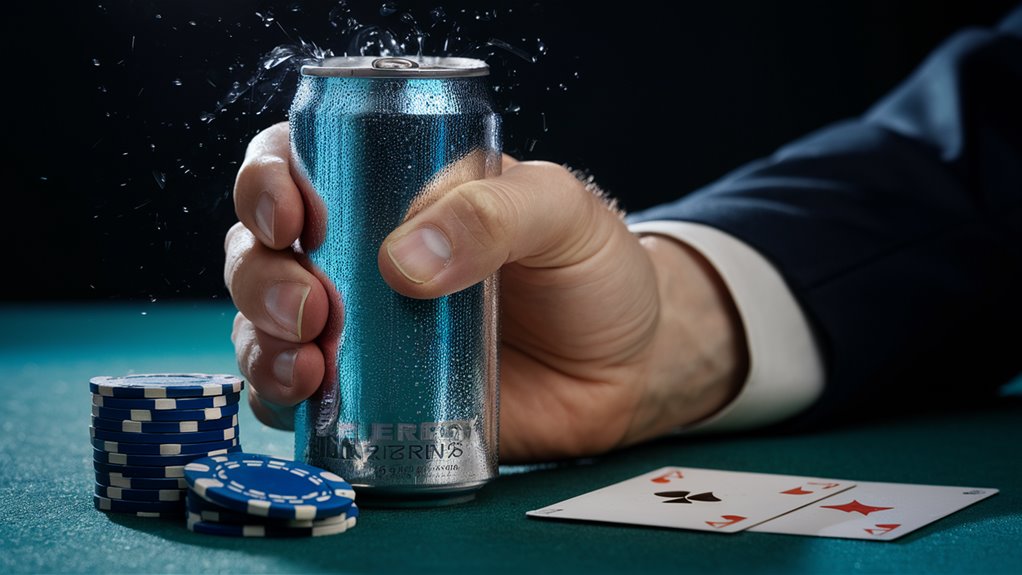
The Rise of Lithium Energy Drinks in Professional Poker
Understanding the Lithium Drink Phenomenon
Lithium-infused energy drinks have emerged as a groundbreaking trend within competitive poker circles, transforming how players approach high-stakes tournaments.
These innovative beverages combine mental performance enhancement with anxiety reduction, creating a unique advantage for professional players.
The Science Behind Lithium Beverages
The core functionality of these drinks centers on lithium’s mood-stabilizing properties.
At micro-dose levels (10-15mg), these beverages deliver subtle yet effective cognitive benefits without the intense effects associated with pharmaceutical applications.
The drinks operate through sophisticated neurotransmitter modulation, affecting serotonin and dopamine pathways.
Comparison with Traditional Energy Drinks
Lithium-based alternatives stand apart from conventional energy beverages through their distinct mechanism of action.
While traditional drinks rely on caffeine and sugar combinations, lithium-infused options provide:
- Enhanced focus without jitters
- Sustained mental clarity
- Improved decision-making capabilities
- Natural anxiety reduction
Regulatory Landscape and Tournament Considerations
The regulatory status of lithium-enhanced beverages remains complex.
Current FDA guidelines create uncertainty regarding their classification as dietary supplements, prompting tournament organizers to evaluate potential restrictions.
Frequently Asked Questions
Q: Are lithium energy drinks safe for consumption?
A: Current micro-dose formulations show minimal risk, but long-term studies are ongoing.
Q: How do lithium drinks affect poker performance?
A: Players report enhanced focus and decision-making without caffeine-related side effects.
Q: Are these drinks legal in professional tournaments?
A: Regulations vary by tournament; some organizations are considering restrictions.
Q: What’s the optimal dosage for competitive play?
A: Most products contain 10-15mg of lithium per serving for optimal effects.
Q: How long do the effects last?
A: Effects typically persist for 4-6 hours, depending on individual metabolism.
Tournament Fatigue and Mental Stamina
Tournament Poker Fatigue and Mental Stamina Management
Understanding Mental Fatigue in Tournament Poker
Mental endurance represents one of poker’s most significant challenges, particularly during major tournament play where sessions routinely extend beyond 12 hours.
Tournament fatigue typically manifests around the 8-hour mark, characterized by impaired decision-making and diminished emotional control.
Strategic Approaches to Mental Stamina
Structured Break Management
Optimal tournament performance requires implementing deliberate breaks every 2 hours. These strategic rest periods should include:
- 5-7 minutes of physical movement
- Proper hydration
- Mental reset techniques
- Deep breathing exercises
Energy Conservation Methods
Tournament professionals maximize mental stamina through:
- Simplified decision-making in non-crucial hands
- Consistent strategic frameworks
- Position-based play optimization
- Systematic hand evaluation
Common Fatigue-Related Mistakes
Tournament players often experience three critical errors during extended sessions:
- Increased loss chasing behavior
- Diminished attention to opponent tendencies
- Reduced positional awareness
Advanced Fatigue Prevention Strategies
Peak performance maintenance requires:
- Detailed performance tracking
- Regular opponent pattern documentation
- Micro-meditation techniques during breaks
- Strategic nutrition timing with protein intake every 4 hours
Tournament Stamina FAQ
Q: How long do poker tournaments typically last?
A: Major tournaments can extend 12-16 hours per day, often spanning multiple days.
Q: What’re the best foods for tournament poker players?
A: Complex carbohydrates, lean proteins, and foods rich in omega-3 fatty acids support optimal mental performance.
Q: How often should players take breaks during tournaments?
A: Strategic breaks every 2 hours, lasting 5-7 minutes, help maintain mental clarity.
Q: What signs indicate tournament fatigue?
A: Key indicators include decreased concentration, increased emotional decisions, and overlooking opponent patterns.
Q: How can players prepare for multi-day tournaments?
A: Establish consistent sleep schedules, maintain proper nutrition, and practice mental endurance exercises prior to events.
Safety Concerns Under Scrutiny
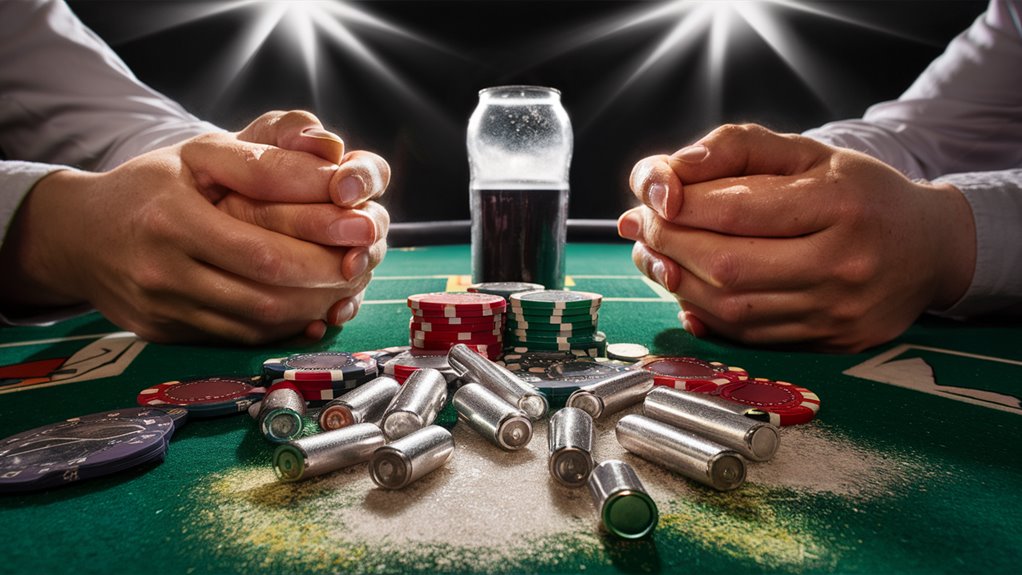
Player Safety and Security in Modern Poker Tournaments
Health and Safety Concerns in Professional Poker
Tournament poker safety has become a critical focus as the competitive landscape evolves.
The increasing prevalence of performance enhancement substances and extended play sessions presents significant challenges for both players and organizers.
Stimulant Use and Medical Risks
Energy drink consumption and supplement use during poker tournaments have raised serious health and safety concerns.
The combination of high-stakes pressure and chemical stimulants creates potentially dangerous conditions:
- Cardiovascular stress from caffeine and taurine consumption
- Mental fatigue despite artificial alertness
- Impaired decision-making capabilities
- Anxiety and panic attacks during crucial moments
Tournament Venue Responsibilities
Professional poker venues must implement comprehensive safety protocols including:
- Standardized guidelines for substance use
- Mandatory rest periods between sessions
- On-site medical support availability
- Player monitoring systems during extended tournaments
Frequently Asked Questions
Q: What’re the main health risks in tournament poker?
A: Extended play sessions, stimulant use, sleep deprivation, and mental fatigue pose significant health risks to players.
Q: How can tournaments better protect player safety?
A: Implementing clear substance policies, providing medical supervision, enforcing rest periods, and monitoring player well-being.
Q: Are energy drinks regulated in poker tournaments?
A: Currently, most venues lack specific regulations regarding energy drink consumption during tournaments.
Q: What medical support should be available at poker events?
A: Professional tournaments should provide on-site medical staff, health monitoring, and emergency response capabilities.
Q: How does fatigue impact poker performance?
A: Extended play without proper rest can significantly impair decision-making abilities and strategic thinking.
Competitive Edge or Unfair Advantage
Performance Enhancement in Professional Poker: Competitive Edge vs. Unfair Advantage
The Evolution of Performance Enhancement in Poker
Professional poker has entered a new era where players increasingly seek competitive advantages through various means.
The tournament landscape now features competitors utilizing everything from energy supplements to cognitive enhancers, raising crucial questions about competitive integrity in high-stakes play.
Legitimate Advantages vs. Chemical Enhancement
Tournament preparation traditionally involves:
- Strategic study 먹튀검증 and hand analysis
- Mental conditioning and focus training
- Physical fitness and endurance building
However, the rise of performance-enhancing substances has created a complex dynamic where natural advantages increasingly compete with artificial enhancement.
Players utilizing nootropics and stimulants can potentially access:
- Enhanced decision-making speed
- Improved emotional control
- Extended mental stamina
Establishing Clear Guidelines
The poker community faces the challenge of developing comprehensive regulations regarding performance enhancement. Key considerations include:
- Defining acceptable performance supplements
- Identifying prohibited substances
- Creating 슬롯플레이 확장 testing protocols
- Implementing enforcement mechanisms
Q&A Section
Q: What constitutes a legitimate competitive advantage in poker?
A: Skills developed through study, practice, and natural mental conditioning.
Q: Are energy drinks considered performance enhancers?
A: Their status remains debated, though they’re currently permitted in most tournaments.
Q: How do nootropics affect poker performance?
A: They can enhance focus, memory, and decision-making speed beyond natural capabilities.
Q: What measures exist to regulate substance use in tournaments?
A: Currently, few standardized regulations exist across major poker events.
Q: How might enhancement regulations impact future competitions?
A: Proper guidelines could help preserve competitive balance and sporting integrity.
Preserving Poker’s Competitive Future
Establishing clear boundaries between legitimate preparation and unfair advantages remains crucial for maintaining poker’s integrity.
The community must balance innovation with fair play as new performance-enhancement products emerge.
Navigating Tournament Policies
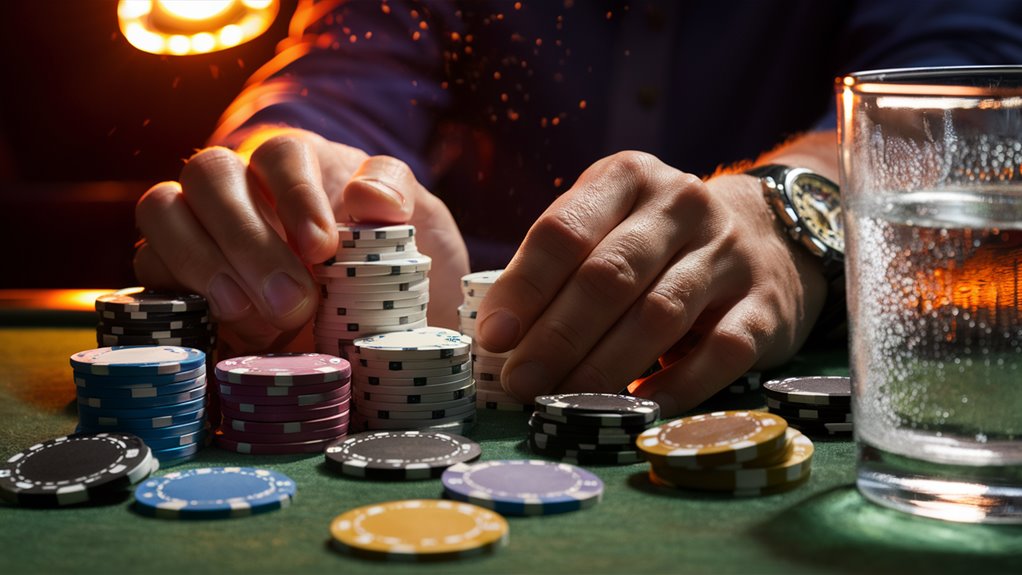
Professional Poker Tournament Policy Guide
Understanding Tournament Enhancement Policies
Professional poker tournaments implement diverse regulatory frameworks regarding performance enhancement substances and supplements.
The tournament landscape varies significantly across major venues, with each casino chain and circuit maintaining distinct policies that players must carefully understand and follow.
Policy Navigation and Compliance
Tournament preparations should begin with a comprehensive review of venue-specific policies regarding cognitive enhancement substances.
While organizations like the World Series of Poker maintain certain positions, other prominent venues enforce stricter regulations. Players must consult official tournament rulebooks and contact organizers directly for clarification on specific substances.
Disclosure Requirements and Documentation
Tournament registration processes vary regarding supplement and medication disclosure. Key considerations include:
- Mandatory reporting of medications and supplements
- Documentation requirements for prescribed substances
- Verification procedures during registration
- Policy updates between tournament events
Frequently Asked Questions
Q: What substances are typically regulated in poker tournaments?
A: Regulated substances commonly include cognitive enhancers, performance-enhancing supplements, and certain prescription medications.
Q: How often do tournament policies change?
A: Policy updates can occur between events, requiring regular verification of current rules.
Q: What documentation should players maintain?
A: Players should keep detailed records of prescribed medications, supplement usage, and any relevant medical documentation.
Q: What’re the consequences of policy violations?
A: Violations typically result in immediate disqualification and potential long-term tournament bans.
Q: Where can players find official policy information?
A: Official tournament rulebooks, venue websites, and direct communication with tournament organizers provide current policy information.



